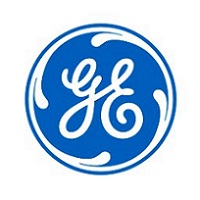 GE Healthcare (@GEHealthcare) announced an expanded partnership with Intel that aims to enhance patient care and reduce costs for hospitals and health systems using digital imaging solutions, deployed via edge and cloud. Together, the companies anticipate their solutions will offer greater hospital efficiency through increased asset performance, reduced patient risk and dosage exposure – with faster image processing – and expedited time to diagnosis and treatment.
GE Healthcare (@GEHealthcare) announced an expanded partnership with Intel that aims to enhance patient care and reduce costs for hospitals and health systems using digital imaging solutions, deployed via edge and cloud. Together, the companies anticipate their solutions will offer greater hospital efficiency through increased asset performance, reduced patient risk and dosage exposure – with faster image processing – and expedited time to diagnosis and treatment.
Through the expanded partnership, GE Healthcare will use the new Intel® Xeon® Scalable platform with an aim towards lowering the total cost of ownership for imaging devices by up to 25 percent. Paired with GE Healthcare’s imaging solutions, the Intel Xeon Scalable platform may improve radiologists’ reading productivity compared to the prior generation by reducing first image display down to under 2 seconds and full study load times down to under 8 seconds.
“Radiologist workdays can be enhanced by use of real-time data analytics and increased performance,” said Jonathan Ballon, vice president Internet of Things Group at Intel. “The combination of innovative imaging solutions from GE Healthcare with the breakthrough speed of Intel processors promises great advances in imaging that could make a real difference in patient care.”
Building on their 20-year relationship, GE Healthcare and Intel are also investing in a new, first-of-its-kind digital development lab in downtown Chicago. The Joint Performance Acceleration Lab (JPAL) will be dedicated to the development, testing and validation of new innovations across a wide spectrum of GE Healthcare imaging hardware and software solutions. This expanded partnership is intended to help enable the highest possible radiology productivity at the lowest total cost of ownership for healthcare providers and clinicians by improving the performance of their imaging fleets.
“Some of our longest-standing modalities are now being infused with the latest in digital technologies – which requires security, precision, speed and efficiency,” said David Hale, Senior Vice President of Enterprise Imaging Digital Solutions at GE Healthcare. “To ensure we are delivering the best possible outcomes at the lowest cost in this digital age, GE Healthcare is partnering with Intel to co-develop on and off premise solutions through our new lab and accelerate these with the Intel Xeon Scalable platform.”
As part of the expanded GE Healthcare and Intel relationship, the two companies will use the workload-optimized Wind River® Titanium Control software virtualization platform to enable hospitals and health systems to deploy more secure, edge solutions that improve agility and reduce operating costs in healthcare environments that require real-time performance and continuous service availability. Wind River Titanium Control software on Intel Xeon Scalable platforms will provide a more secure, real time, intelligent solution for the healthcare edge.
“The combination of powerful Intel processing at the edge with Wind River’s virtualization technology allows GE Healthcare to deliver a high availability end-to-end secure healthcare solution that is game changing for the industry,” said Jim Douglas, President, Wind River. “Through this collaboration, healthcare applications can achieve the uptime, security and low latency that is required for critical services installed at the healthcare edge.”
About GE Healthcare
Harnessing data and analytics across hardware, software and biotech, GE Healthcare is the $18 billion healthcare business of GE (NYSE:GE). As a leading provider of medical imaging equipment, with a track record of more than 100 years in the industry and more than 50,000 employees across 100 countries, we transform healthcare by delivering better outcomes for providers and patients. Follow us on Facebook, LinkedIn, and Twitter or The Pulse for latest news.
Intel technologies’ features and benefits depend on system configuration and may require enabled hardware, software or service activation. Performance varies depending on system configuration. No computer system can be absolutely secure.
